Geographic knowledge Worksheets for Kids
5 filtered results
-
From - To
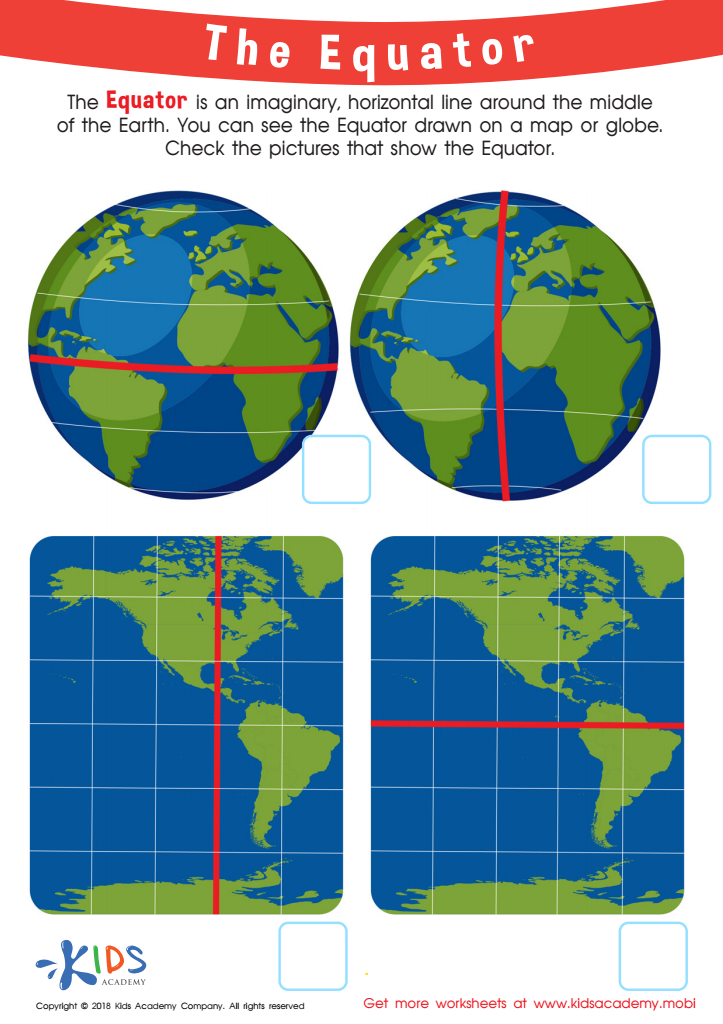

The Equator Worksheet
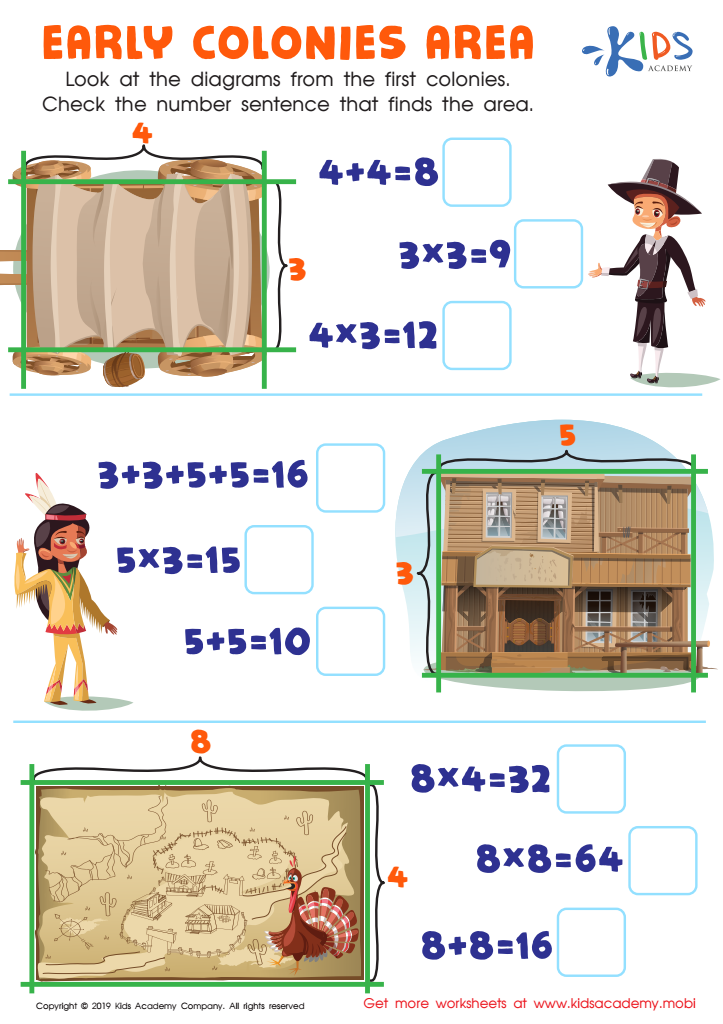

Early Colonies Area Worksheet
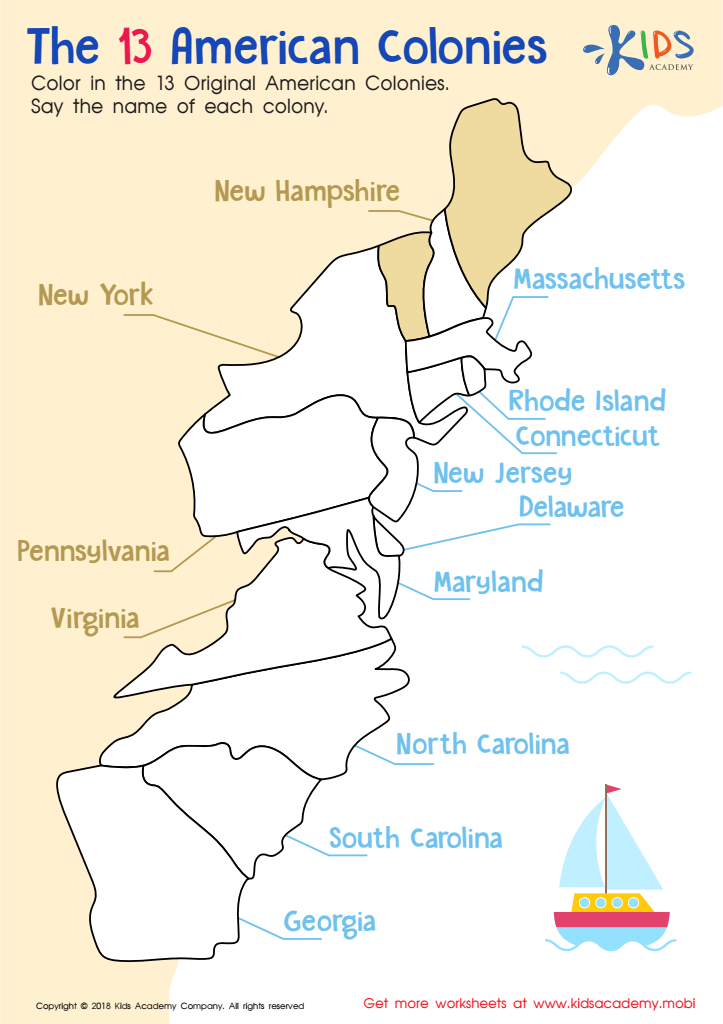

The 13 American Colonies Worksheet
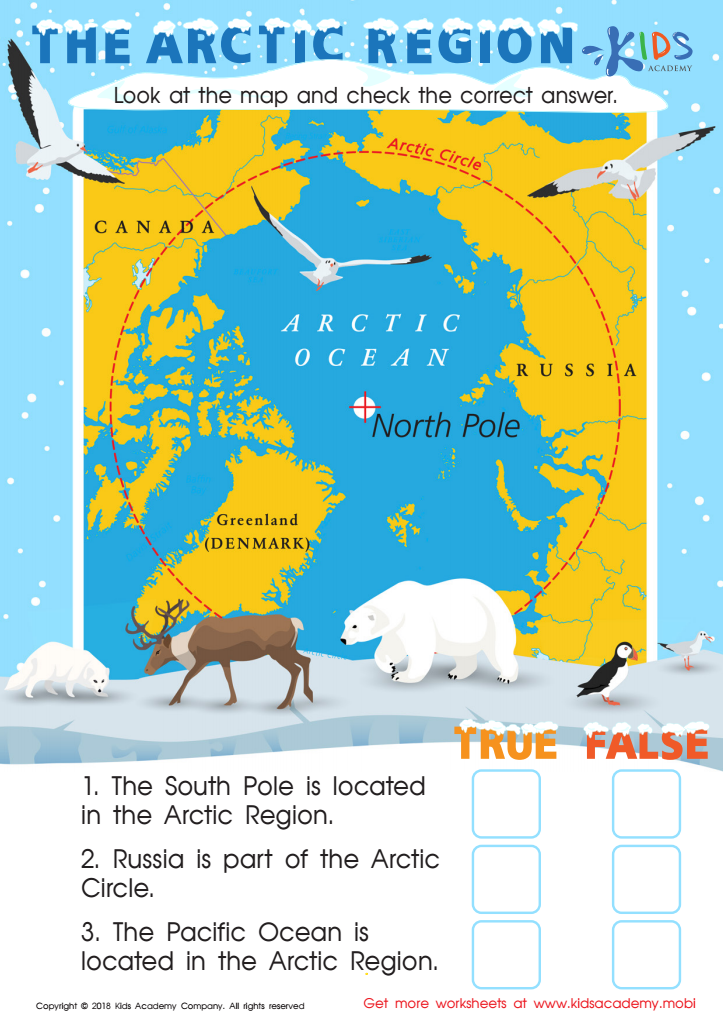

The Arctic Region Worksheet
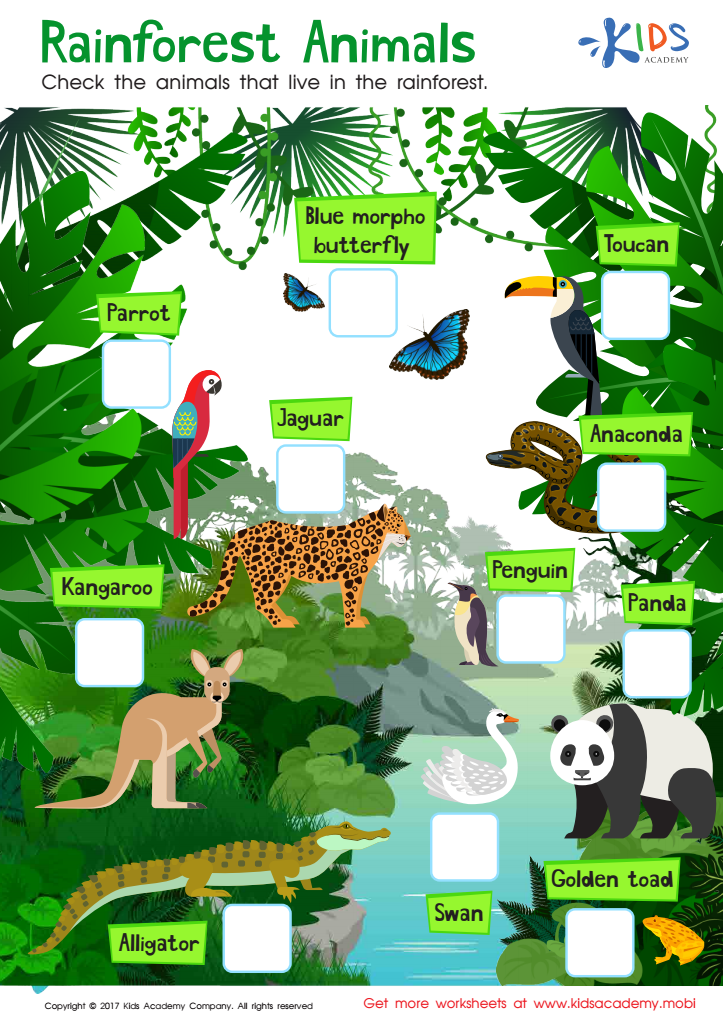

Rainforest Animals Worksheet
Question/Answer
How does the mastery of the Geographic knowledge skill affect a student's performance at an early age?
Mastery of geographic knowledge at an early age enhances a student's understanding of the world, improves spatial thinking, and fosters awareness of different cultures and environments. This foundational knowledge supports cross-disciplinary learning, boosts critical thinking and problem-solving skills, and nurtures curiosity and empathy towards global issues, positively impacting overall academic performance and social awareness.
What are some effective activities to train students’ Geographic knowledge skill when teaching them about Life Science?
Incorporate interactive map activities to highlight biodiversity hotspots, use GIS (Geographic Information Systems) technology for ecosystem mapping, organize virtual field trips to diverse habitats, implement project-based learning with a focus on local flora and fauna conservation, and encourage participation in citizen science projects that require geographical tagging of observations, such as iNaturalist or eBird.
How to train the Geographic knowledge skill in Grade 2 students learning about Life Science?
Incorporate interactive maps and globes into lessons, focusing on habitats, continents, and oceans relevant to the species studied. Use hands-on activities, like matching animals to their geographic locations or creating simple physical maps with landmarks. Incorporate storytelling with a geographic context about animal migrations or plant adaptations in different environments.
 Assign to My Students
Assign to My Students





%20(1).jpg)












